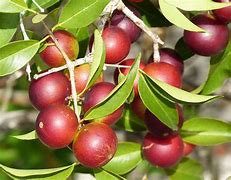Triclosan was registered as a pesticide in 1969.
Uses of Triclosan
Triclosan is used to stop or slow the growth of fungus, mildew and bacteria. It also has many industrial uses such application on HVAC coils (to prevent antimicrobial growth), conveyer belts, ice making equipment (as an anti-microbial pesticide), and fire hoses. It has many common daily uses in products such as soaps, shampoos, toothpastes, cutting boards, antimicrobial sponges, and other antimicrobial products. So your best bet is simply to avoid any product that says “antimicrobial” on it.
Triclosan Effects Muscle Tissue
During testing researchers exposed human cells from both heart muscle and skeletal muscle to triclosan, similar to what an average person would be exposed to. They used electrical stimulation that would cause muscle contraction in muscle cells. The isolated cells that were exposed to triclosan failed to respond. The second stage of testing was conducted on mice and minnows. After a single exposure to triclosan, the mice experienced a 25% reduction of heart muscle contractions, and their grip strength was reduced by 18%. Minnows were exposed to levels of triclosan that are unfortunately, already found in the wild. After seven days of exposure their swimming abilities were significantly decreased, making them easy prey for predators.
Triclosan and Your Heart
Nipavan Chiamvimonat, Professor of Cardiovascular Medicine at UC Davis, shares that the testing done on mice and minnows showed dramatic results and states “Although triclosan is not regulated as a drug, this component acts like a potent cardiac depressant in our models.” She cautions that translating the results from animals to humans is a large step that would require further study, but the evidence is very strong that triclosan could have a huge impact on the health of humans at the current levels of daily use and exposures. She goes on to state that “In patients with underlying heart failure, triclosan could have significant effects because it is so widely used. However, without additional studies, it would be difficult for a physician to distinguish between natural disease progression and environmental factors such as triclosan.”
Triclosan Effects Hormone Regulation
Triclosan suppresses thyroid function in laboratory rats, by decreasing the thyroid hormone thyroxin (T4). The FDA does state that triclosan alters hormone regulation in animals. The EPA has also stated that they will review triclosan beginning in 2013, specifically looking at “endocrine research and make any amendments to their regulatory decision, if the science supports a change”. Thyroid hormones are of critical importance for normal brain development, especially for a developing fetus during pregnancy. In other animal studies, low level triclosan exposures lead to negative health effects in offspring such as decreased fetal weight, and smaller skull development
Become a Label Reader
One of the best things you can do for yourself and your family is to become a label reader. Believe it or not antibacterial soaps and toothpastes are considered over the counter drugs. The advantage to this is that due to FDA regulation the ingredients must be disclosed, so if it has triclosan, it will be on the label.
Avoiding Triclosan
Don’t buy antimicrobial soaps.
Avoid products that are labeled antimicrobial, or have the terms “fights bacteria”, “protection against mold”, or makes claims such as “odor-fighter “or “keeps food fresh longer”.
Look for triclosan and its chemical cousin triclocarbon on labels.
Soap and Water
If you’re looking to control germs, wash with soap and water. The FDA has no documentation at this time that adding triclosan to soaps provides any additional health benefits over soap and water, so why take the risk?
To read more about triclosan click here.
References:
http://www.ucdmc.ucdavis.edu/publish/news/newsroom/6872
http://toxsci.oxfordjournals.org/content/117/1/45.abstract
http://www.epa.gov/oppsrrd1/REDs/factsheets/triclosan_fs.htm
http://safecosmetics.org/article.php?id=718
http://www.ncbi.nlm.nih.gov/pmc/articles/PMC2265044/
http://www.ewg.org/news/testimony-official-correspondence/ewg-urges-ban
http://www.ncbi.nlm.nih.gov/pubmed/10722890
http://www.pnas.org/content/109/35/14158.full?sid=d6b6f5ee-1e14-455b-8dec-0eb71d08608e
Zorrilla, L., et al (2009). The effects of Triclosan on Puberty and Thyroid Hormones in Male Wistar Rats. Toxicological Sciences. 107(1) 56-64.








